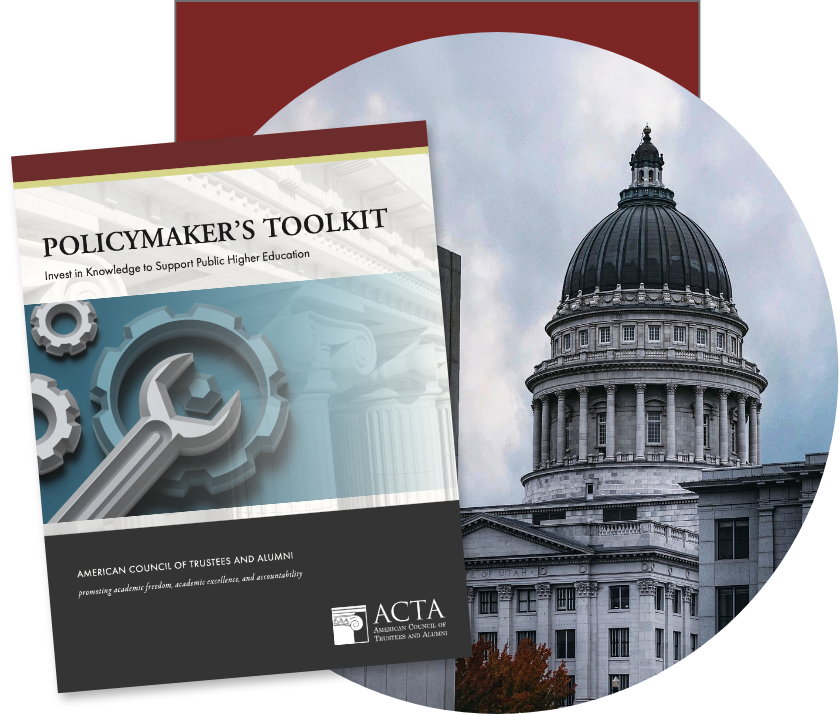Winter 2025 Higher Ed at Glance
December 19, 2025

Public leaders cannot blindly trust that America’s colleges and universities properly serve taxpayers and students in the absence of careful oversight. ACTA’s thoughtful analysis and understanding of best practices can help policymakers and higher education leaders be effective in their crucial roles.
Select a state to see detailed data



Measure the Impact of Runaway Spending
Policymakers must make the efficient use of public resources a top priority so that students across the country have access to a quality college education at an affordable price. Students and taxpayers deserve to know whether the colleges and universities they finance provide an adequate return on investment.
In The Cost Of Excess, ACTA examined nine years of data from over 1,500 private and public four-year institutions across the country. We found that increases in administrative spending—continuing even through challenging economic times—drove tuition hikes while doing little to improve graduation rates. The report offers guidance to help lawmakers ensure that public funds benefit students first.
Promote Innovation by Reforming Quality Assurance
The college accreditation system is broken. Originally intended to ensure that federal funds flowed to quality educational programs, its antiquated processes discourage innovation while failing to protect students. A broad, bipartisan consensus agrees that legislative action is overdue. In Accreditation on the Edge, ACTA outlines how Congress can reform quality assurance for the 21st century.
December 19, 2025
ACTA Holds Webinar for Big Ten Conference Trustees On November 14, the American Council of Trustees (ACTA) hosted a webinar for governing board members of Big Ten Conference institutions to examine a proposed $2.4 billion-dollar private equity deal between the conference and UC Investments. Our w…
April 7, 2025
Policymakers across the country are advancing higher education reforms, including bans on legacy admissions, elimination of DEI programs, and efforts to strengthen free speech and fiscal transparency. ACTA outlines key legislative developments, federal priorities, and resources like the Policymak…
October 1, 2024
With public trust in colleges declining, ACTA’s latest initiatives provide practical tools and guidance to help state leaders drive meaningful change and ensure better outcomes for students and taxpayers. ACTA also highlights the urgent need for reform in higher education through renewed efforts …
Launched in 1995, we are the only organization that works with alumni, donors, trustees, and education leaders across the United States to support liberal arts education, uphold high academic standards, safeguard the free exchange of ideas on campus, and ensure that the next generation receives an intellectually rich, high-quality college education at an affordable price.
Discover MoreSign up to receive updates on the most pressing issues facing our college campuses.